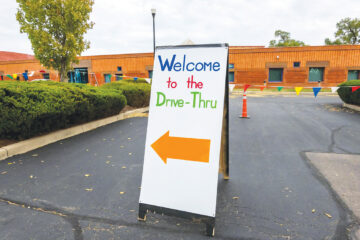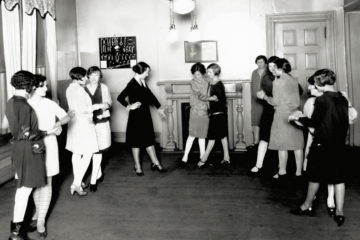Temple Israel OKs interfaith weddings in its building
TI new policy
Under several specific guidelines, the board of Temple Israel agreed on March 23 to permit interfaith wedding ceremonies in the congregation’s building.
The Reform congregation’s decision followed six months of discussion and review by an eight-member interfaith wedding task force.
According to Rabbi David Sofian, the temple’s senior rabbi — who does not perform interfaith wedding ceremonies — his role was to serve as advisor to the task force.
“We started knowing this was an emotionally charged issue,” he said. “They tried to develop policy gradually for the congregation as opposed to winning for one point of view.”
The policy specifies that an interfaith couple meet with the senior rabbi before their marriage.
The senior rabbi will then “urge the couple to take a class in basic Judaism; express the expectation that the couple will join a Jewish congregation of their choice after they are married; and discuss conversion to Judaism for the non-Jewish partner. “
In the Reform movement, individual rabbis decide whether or not to perform interfaith weddings.
In the Conservative and Orthodox movements, rabbis are prohibited from performing such ceremonies.
At Temple Beth Or, a Reform congregation in Washington Township, Rabbi Judy Chessin performs interfaith weddings for her members.
Sofian estimated that approximately one-third of his congregrants are intermarried.
The new policy also states that an interfaith ceremony must be performed by a rabbi approved by Temple Israel’s senior rabbi or by a civil official.
The senior rabbi can remove any item or items from the submitted ceremony, and ceremonies may not include non-Jewish religious symbols and practices.
Non-Jewish clergy are not permitted to officiate or co-officiate in the building.
Temple Israel’s Immediate Past President Al Brown said he established the task force because of requests from congregants.
“It’s always been out there,” he said of the requests. “People have asked if we could have ceremonies in the building. In a lot of congregations, the rabbi’s decision spills over to the congregation’s position.
“When Rabbi Sofian came, we were approached by the same number of people. His take is that this was a congregational decision.”
Jeff Stoller, chair of the task force, said the committee studied, debated and had open discussions on the issues.
“It was the thoughtful work of a team,” Stoller said. “There were opinions in favor and not in favor — and they were very strong. It’s not a simple question. We deliberated in a fair, humane fashion.”
©2005 The Dayton Jewish Observer





